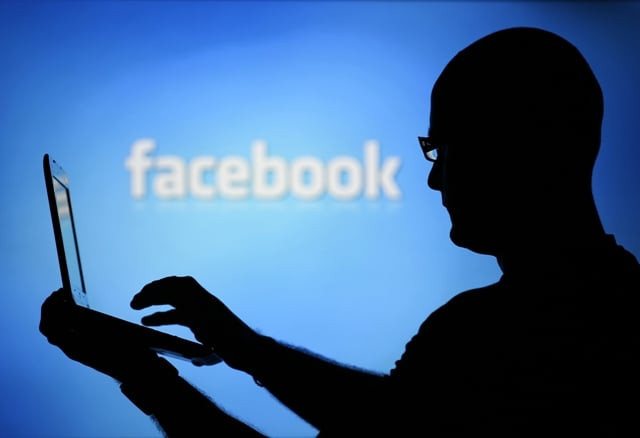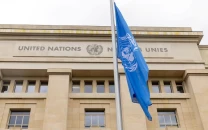Male, female or custom? Facebook's new gender options
Facebook users could opt to be referred to as "he/him" or "she/her," or by a neutral "they/their" choice.

The social network's latest initiative was given more than 4,000 likes on the page, and mostly favorable comments.. PHOTO: REUTERS
Along with adding scores of "custom gender" options on profile pages, Facebook is letting members select which pronouns they wish to be used when being referred to in posts or messages.
Facebook users could opt to be referred to as "he/him" or "she/her," or by a neutral "they/their" choice.
"While to many this change may not mean much, for those it affects it means a great deal," Facebook said in a post at its Diversity page that included a picture of a giant rainbow flag on display on the company's campus in the Silicon Valley city of Menlo Park.
Facebook said it worked with lesbian, gay, bisexual and transgender activist groups to create a thorough list of gender options, which can be found in an "other" category on any Facebook profile “About” page.
Custom genders are only available to those who use Facebook in US English but the company plans to expand the range in the future.
Feedback in a forum at Facebook's Diversity page was mostly positive, with some suggesting a need for even more description options and others insisting that biology limits the choices to male or female.
Facebook's move will make "great strides" in supporting young people whose sexual identities don't conform to traditional societal norms, according to US-based gay advocacy group Human Rights Campaign Foundation.
"Over the past few years, a person's Facebook profile truly has become their online identity, and now Facebook has taken a milestone step to allow countless people to more honestly and accurately represent themselves," said HRC president Chad Griffin.
A survey of 10,000 lesbian, gay, bi-sexual or transgender youth published on Thursday by HRC revealed that nearly 10% of them put themselves in a "gender-expansive" group that could benefit from Facebook's move.
Two-thirds of the surveyed people in that group wrote in genders such as queer, gender-fluid, and "non-binary," which means they feel they are neither male nor female, or some combination of both.
The survey also indicated that "gender-expansive" youth were less likely to say they were happy, fit into their communities, or had an adult at home they could turn to.
Facebook said on its official Diversity page: "When you come to Facebook to connect with the people, causes, and organizations you care about, we want you to feel comfortable being your true, authentic self.
"An important part of this is the expression of gender, especially when it extends beyond the definitions of just 'male' or 'female.'"
The social network's latest initiative was given more than 4,000 likes on the page, and mostly favorable comments.
One user, Katarina wrote: "Thank you from the bottom of my heart. You have made me feel like a real person and I cannot tell you how much that matters."
There were however dozens of others, including a user called Shannon Sha, who said: "Great option, but needs to be added in every country."



















COMMENTS
Comments are moderated and generally will be posted if they are on-topic and not abusive.
For more information, please see our Comments FAQ